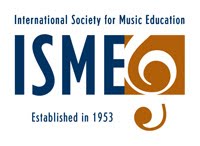Elliot Eisner
Lee Jacks Professor of Education and Professor of Art, Stanford University
For those who work in the arts either as creators of an art or as teachers who try to foster the benefits of art to those in schools, the trip has always been uphill. The arts have suffered from a stereotype that regards them as more ornamental than essential, more emotional than reflective, closer to the rim of educational purposes than to its core. Those concerned with the arts and who assign them an important value in education are more often than not looking in from outside the window.
It is true, of course, that schools offer a modicum of arts activities to their students, but this offering is seldom considered a central part of the school's program. There are, sometimes, protestations from policymakers that arts are at the core of education, but the reality is that they are more often at the margin.
Just how does one make a case for the arts in education? One might ask why one has to make a case for a form of human practice that is as old as humans themselves. Nevertheless, cases do need to be made and, even more, the politics of curricular choice need to be addressed if the arts are to secure more than eloquent testimony.
There are, I think, a myriad of reasons why music of all the arts should have a central place in school programs. I will, however, describe three reasons for music's important role in education. The first of these pertains to what can be regarded as its cognitive contributions, the second to what music enables one to express or know, and the third pertains to the kind of experience that music makes possible.
Distinctions such as the type I have made are necessary to be able to speak about most anything. Yet, in reality, to the extent to which we can know it, the distinctions meld and fuse, they melt and blend into each other. I am painfully aware of that. Nevertheless, for purposes of clarification, I return to the distinctions between what is mental, or cognitive, what resides in matters of meaning, and finally, in what is experiential.
Experience in music as a performer, especially but not only, makes it possible for students to have what might be called musical ideas. Musical ideas are notions expressed in music and organized in ways that reflect the choices that the maker selects. Thinking musically means thinking within the constraints and affordances of patterned sound and, more recently, in silences as well. The medium is auditory and the practices that give it shape are cognitive. We learn to hear and to notice. We learn how to organize sound so that what it expresses will not take the impress of literal or even metaphorical description. In this process, we learn to think. The thinking that we learn to do is thinking within music. As I indicated, music in its perception and especially in its creation, requires us to think musically about what we attend to.
Insofar as music makes such demands on those who experience it, music is a vehicle for developing the mind. But it is a way of developing the mind musically, not necessarily generally. There may be transfer involved in some aspects of musical thought but that is not the hook on which I would hang my hat. Intelligence in music is expressed musically. Music education is a way to foster such intelligence.
With respect to matters of meaning, the role of music in enabling humans to express what cannot be said is, and has been, exemplified throughout the ages. One has only to think about the uses of music in the ceremonies that followed 9/11 to recognize that humans have a profoundly deep need to embrace the arts, all of them, when they need to express what cannot be articulated in language. Music is a way of sharing and indeed experiencing the deepest aspects of our interior landscape. They give us access to forms of life that express what has been compressed into musical thought. Such thinking shapes feeling and gives feeling a presence in the public world. If music did not achieve such an outcome, I do not think its place in human history would have been so enduring. The irony, of course, is that although music has been essential in our most important moments - - when we bury and when we marry - - in the context of schools, it is taken for granted, very often as a kind of divertimento. It is much more than that.
The third function of music pertains to the quality of life that music makes possible. Music, at rock bottom, is a source of intrinsically valued experience. We go to the concert hall to be moved, to be touched, to undergo forms of life that have their own, non-instrumental rewards. A life without such experience is one which is flat, dry as toast, emotionally drained. Music, in short, is a way of reminding us what it is to be alive.
The contributions, therefore, of music in the context of education is at once cognitive, meaningful, and experiential. Music develops ways of thinking, it provides forms of significance that will take no other form, and it yields forms of experience that are, at their best, deeply treasured. I believe that such contributions represent profoundly significant justifications for the place of music in schools. Indeed, such justifications when they are realized often pale what many other fields given more attention, more time, and more significance have to offer. Perhaps one day not only music but all of the arts will be recognized for their potentially important contributions for helping our children realize their humanity.

No comments:
Post a Comment